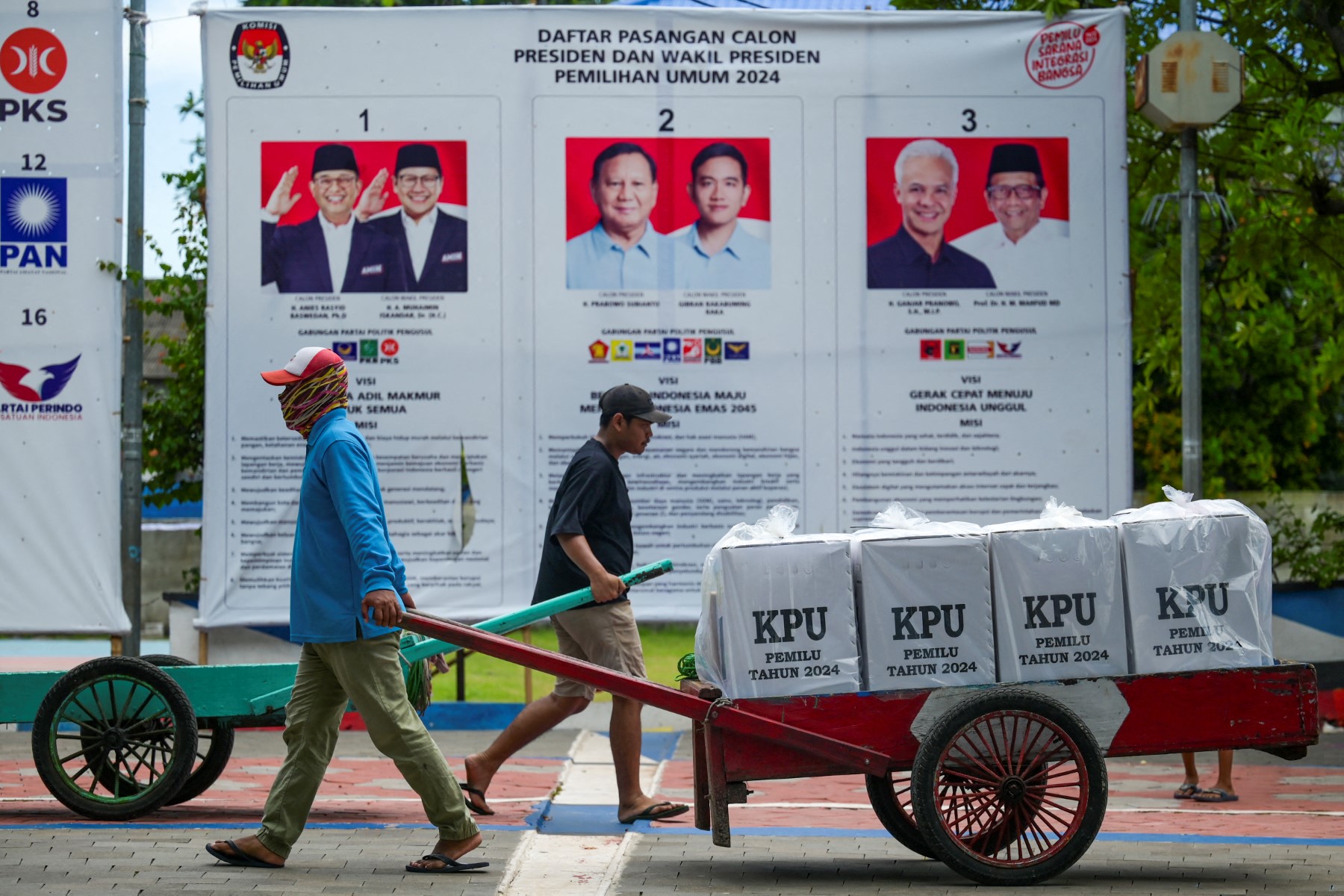There are 106 million Indonesians aged between 17 and 40, representing 52 percent of the eligible voters in the country. Support of youth voters is therefore crucial for candidates who are competing in the February 14 general election.
Indeed, many candidates tried to capture the youth vote during the campaign period by actively using social media platforms to interact with young internet users. Some even adopted Korean pop culture themes in their campaign materials to reach Indonesian K-pop fans.
Justin Wejak, a lecturer with the Asia Institute at the University of Melbourne, noted the role and potential of young people in deciding the election results.
With an acute sense of social awareness — and a level of internet-enabled connectivity that their predcessors lacked — the current generation of young are well placed to play a pivotal role in influencing political discourse, challenging the status quo, and ultimately, shaping the outcome of future elections.
But Petir Garda Bhwana, editor of the news website Tempo, highlighted the key issues facing the youth that prevent them from realizing their full potential as major drivers of change in the country.
Contrary to the image of youth as the agents of change, the day-to-day reality is that many are forced into precarious working and living conditions, which are further intensified in crisis situations, such as the pandemic. Underprivileged youth with limited social capital fare even worse.
The political system offers little chance for young people to remedy their discontent. As institutions of democracy have continued to be marginalised, young people’s political agency has been undermined.
During the campaign period, young voters shared their perspectives in several media interviews and public events.
Bobby Hidayat, 22 years old, told Channel News Asia about the difficulty of choosing who to vote for as president.
They all have their flaws. They all have their strengths and weaknesses. It’s hard and I need to decide carefully because we are all choosing who will lead this country for the next five years.
He added that he is collecting more information about candidates rather than relying on the preferences of those close to him.
I tried to be rational and not pick a candidate just because my family said so or because my friends are all supporting this candidate or that candidate. I tried to get as much information as I can about each candidate and pick which one feels right for me.
During a discussion at the Universitas Gadjah Mada, law student Linda Kristiani Sianturi expressed concern that most news coverage is focused on the presidential candidates rather than on the legislative election.
For the legislative election, student interest tends to wane. The spotlight is more on the presidential race. Yet, the role of legislative members is pivotal in shaping policies that directly affect the populace, such as crafting laws and overseeing the government, including tax.
During the same event, 22-year-old philosophy student Laksito Lintang has a proposal concerning education and employment.
As a student, I suggest implementing free education programs and facilitating job access for graduates with active organizational experience or internships.
Rayhan, a 24-year-old small business owner and youth activist, told Jakarta Globe about the need for candidates to address economic concerns and the rule of law.
It is very difficult to own a house as a young person. I’m also looking for someone who prioritizes infrastructure and makes it easier to own a home…and ultimately I want someone who can solve the human rights issues in Indonesia, particularly around police brutality.
Ginanjar Ariyasuta, a 24-year-old environmental advocate from climate campaign group 350, challenged candidates to prioritize renewable energy.
All (candidates) still have plans to develop the mineral processing industry and rely on coal and fossil fuels. The young generation is the one who are most affected by the climate crisis, with their future at stake. We must do energy transition now.
Titi Anggraini of the Association for Elections and Democracy (Perludem) encouraged young voters to become election officials to minimize incidents of electoral fraud like the practice of buying and selling votes and changing election results at the district level.
I believe that college students have sufficient integrity to be involved in collecting public votes and maintaining the clarity of voters’ votes to prevent them from being cheated by manipulative practices.
Young Indonesians have also launched initiatives aimed at providing information and education to voters. One example is Bijak Memilih, a platform where internet users can find credible information about political party programs and perspectives on key public issues. Former environmental economist Andhyta “Afu” Firselly Utami, who co-initiated Bijak Memilih, mentioned in a TEDx talk about the importance of voters’ education. A summary of her talk:
Afu believes that current political discussions only focuses on charismatic leaders rather than issues, policies, and ideas. Through this talk, Afu shares her own journey in breaking the apathy in political practices where she further encourages young voters to choose wisely in the next election.
Mong Palatino is an activist and former two-term member of the Philippine House of Representatives. Blogging since 2004 at mongster’s nest, he joined Global Voices in 2006.
This article was first published by Global Voices.
